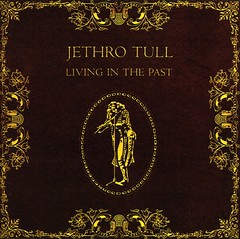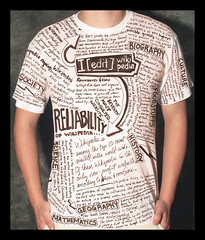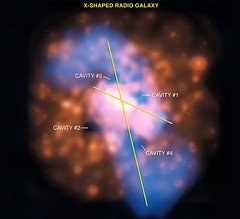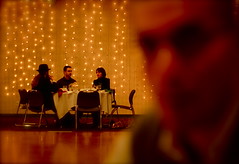Happy Canada Day, everyone! For those of you who don't know, I'm a Canadian and have lived in Canada all my life but for a handful of years living in NJ and working in NYC. As is typical, I'm, by default, proud of my country but I've hardly experienced the rest of the world so I can hardly compare really. And, as all Canadians do, I have experienced a pile o' American culture (through TV, movies, books, music, etc.) so I'm heavily influenced by all that despite being part of that culture.
From the Canadian Heritage site on the "History of Canada Day", you can see that Canada Day was originally called Dominion Day, based on the day of the 'creation' of the "Dominion of Canada" by the British North America Act on July 1, 1867. In a way, Canada Day is Canada's birthday so happy 147th birthday, Canada!
So what does Canada 'mean'? Well, according to that vignette that Canadians saw on TV (in, what, the eighties?) the word "Canada" comes from a misunderstanding of the Iroquois word, "kanata" or village. (You can also look here and here.) But what does the country named Canada mean? What is different about it? Well, not much, at least in comparison with the United States. I would say that, at least in southern Ontario, Canadian culture is much the same as American culture, particularly the US east coast and the midwest. We're pretty white, quite materialistic, like our franchised restaurants, based primarily on European culture and Britain in particular, reasonably well-off compared to much of the rest of the world, youngish (only 147 years old), and individualistic. I get the feeling that we're a little more European, socialist, and calm when compared to the US, and we certainly aren't as militaristic or politically active as Americans. We have plenty and enjoy plenty of British imports like our chocolate/candy bars and TV like Coronation Street. It's hard for me to compare Canada and Canadians with the rest of the world other than saying we're similar to the US so I'm not going to even try.
The other regions of Canada have some other unique cultures that, although I haven't experienced directly, I am aware of the basics and the stereotypes. Quebec is francophone which brings with it cultural behaviours related to France, Catholocism, and a feeling of independence when defending against the encroaching anglophone culture from the States and the rest of Canada. Eastern Canada borrows more from Irish and Scottish culture (as opposed to the English cultural background in Ontario), and IMHO is a little more safe from American influence. The Prairie Provinces have a lot of similarity with the American Midwest in that they tend to be more rural and conservative. I would suspect that much of BC is the same except for the more urban Vancouver area which I've been told is similar to the American West Coast. Vancouver is like Canada's California... damn hippies. lol And the northern territories are also very rural in terms of culture by necessity but also quite influenced by native culture.
(Of course, much of what I've included here is based on very little direct experience of the people or living in the area so please correct me if I've painted incorrect or overly broad strokes on the different regions of Canada.)
I like living in Ontario, Canada. Weather is a nice mix between snow and cold in the winter (down to about -30 to degrees Celsius, though it does regularly get down to -40 in northern Ontario and probably lower) and pretty hot in the summer (upwards of maybe 30 degrees Celsius). And we don't tend to have extreme and dangerous weather like tornadoes (although there was a bit of tornado damage a couple months ago in Toronto), hurricanes, floods, tidal waves (we're well inland expect for four of the five largest lakes in the world), landslides, etc. Cold tends to be the worst weather extreme that we have and that can certainly take its toll in terms of hypothermia, damage to power lines and roads, difficulty in travelling, etc. But I'd rather have too much cold than, say, earthquakes.
What is Canada to you? Or, at least, what is YOUR part of Canada to you?
Showing posts with label Image(s) Included. Show all posts
Showing posts with label Image(s) Included. Show all posts
Tuesday, 1 July 2014
Wednesday, 12 March 2014
Top four things I've learned cataloguing my own books
For several weeks now, I've been (somewhat amateurly) cataloguing my personal collection of books with LibraryThing. I love it. Basically I'm just ensuring the proper and well-formatted title, checking it has the right cover, including the main authors and other responsibility holders, tagging them with my own main "categories", putting them in collections of who in my family it really belongs to, specifying where and when I got it (if I can remember or figure it out), and putting in a Dewey number. It's fun, of course, being the librarian nerd that I am, but it's also fascinating and I was thinking about how valuable but impossible it would be to have library school students actually do some personal cataloguing of at least a hundred titles. Here are some of the interesting things I've found:
- I've never really thought about the categories of books I've had before. I've collected books from many sources and over a long period of time so I've never really had a very clear personal "collection policy" so there's plenty of odd stuff in there. It's mostly graphic novels, reference books, philosophy stuff, science stuff, and of course kid's books but there are ones that stand out: "Sesshu's Long Scroll", a spiral bound copy of "Understanding Neural Networks", and a nicely bound copy of the Qu'ran. In the course of cataloguing some of these works, particularly when I'm tagging them with my basic subject areas of interest -- figuring out how broad or specific to make those tags or whether to use them at all if there's only going to be one or two with that tag anyway -- it really makes me think about subject headings and how they can and/or should be used. I initially just wanted to be able to see the numbers of certain books in a subject that I find interesting and retrieve them easily. But then I had to add non-subject tags like ".damaged" or ".gift". And then format tags, such as "REFERENCE" or "GRAPHIC NOVELS". I came across my copy of "Dark side of the moon : the making of the Pink Floyd masterpiece" and realized that, although I like music, I don't really have a lot of books on the subject. Should I get more? Is it worth my time? I have so many other interests. Going through my books subject-wise is like walking through a list of my interests, both proven by past actions and potential or maybe just hinted at.
- Dewey numbers are crap for fiction. Ok, everybody knows that but trying to put my books into some sort of order led to using Dewey numbers which led to the hard fact that Dewey doesn't do any kind of fiction justice, especially comic strip compilations and graphic novels. I had to invent a personal organization method to use instead, roughly based on the solutions I've seen in public library. For example, "FIC A Smi 1997" is a work of fiction, considered an "adult" novel (not sexual, just grown-up, to differentiate it from my YA books and juvenile books, or other formats), by someone with the last name starting with "Smi" published (or originally created) in the year 1997. It's mostly, as Dewey is supposed to do, to lump alike things together.
- It's a lot of work. Again, not a new discovery here but it's really hit home. And I'm not even truly cataloguing them. Just cleaning up a few key pieces of metadata. I was tidying up the publication statement and ensuring it had the right ISBNs but that starting taking too long and I didn't think it was really worth it. And besides, I think LibraryThing records include ISBNs that I can't easily see since I get records with a search for an ISBN that doesn't end up being the in field. Odd. Anyway, not really important, and not worrying about it made things go a little quicker.
- Finally, although you have to "judge a book by it's cover" it's better if you don't have to. Describing a book, or really anything, should be done with someone that has a good deal of knowledge about the work (or thing). Some key access points may not be immediately clear to someone who hasn't read the book. If you don't know the subject area, then how could you know the place this particular work has in it? Ideally, cataloguing should be done slowly by a few people who love the particular work, perhaps the particular author. Philosophy texts should be catalogued by philosphers, collections of poetry, by poets. How can I truly describe my book on neural networks? I know very little about cognitive science. But cataloguers don't and can't know the subject matter to that degree. The work is done by people who know classification and the rules of AACR2 and RDA. But when keying in even the tiny specks of metadata about my own collection, I find it much easier and much more rewarding to work with a book I have written a review of, like "Knitting the Semantic Web", or read a million times, like "Waiting for Godot". Sometimes it makes me think of the part of "Farhenheit 451" when the main character meets the "books", the people who have memorized entire novels and have saved them that way. Perhaps each book should have it's own cataloguer, who gets to know the work, inside and out, and therefore is the only one qualified to know how to describe it and give access to it. Not good for the people in those jobs though, I guess, right?
Oh, and one more thing. I've discovered that I'm really weird. I take great pleasure in considering the proper capitalization of my books. For example, in AACR2, the only title words that get capitalized are the first one and any proper nouns. I have the graphic novel "Star trek : countdown". Although it looks weird, "trek" doesn't get capitalized because, in the context of the title, it's not a proper noun. It's just a "trek" through the "stars". But I also have "Star Trek : The Next Generation : technical manual". In this case, "Trek" is capitalized because this is a technical manual for the ship in the TV show "Star Trek : The Next Generation". TV show names are proper nouns. (I mean, technically, the book should have been called something like "Technical manual for the USS Enterprise, NCC-1701D" or something like that, and not had a cool cover, but publishers like to think they're tricking us into buying their crap... which they are.) In the first case, the work is using the term as a name for the work and isn't referring to itself. It's just using the words as they are, as the entire "Star trek" universe does. The second case is using the term in reference to the series, to the previous works, to the fictional universe that the TV shows, movies, comics, etc. make up.
Of course, I'm only half way through my books so far so perhaps I'll learn more (or learn better?) as I go. And then there's my movies and video games... I need a "LibraryThing" for those.
Monday, 21 January 2013
Reader survey results and responses
 Just read Reader survey results by Joseph Esposito (via a Scholarly Kitchen entry).
Just read Reader survey results by Joseph Esposito (via a Scholarly Kitchen entry).This is the summary of the results of a reader survey conducted by the author and Joe Wikert. These are my own professional librarian take-aways:
- So there are plenty of readers directly purchasing books from the publisher? Perhaps, as libraries, with our role firmly between the publisher and our readers, we could facilitate those transactions. I WANT my patrons to get the information/entertainment they want and it doesn't have to always be through something actually IN our collection. If a student wants to buy the book, I'd like to help her get the right one. Maybe we could even convince the publisher/provider to give them a discount since the library helped out.
- It's suggested that while readers tend to like to purchase books online, they still like to browse in print. Great! The library is still purchasing plenty of print, so perhaps we should be showcasing it more/better? More displays and sprinkled liberally around our buildings, not just at the front door. Public library tend to do it better than academic, but we could all do it more. Of course it has to be controlled better: searching readers need to be able to find it, not just browsing readers. We could also make our stacks a little more browser-friendly with labels, maps, signs, etc.
- It's mixed as to what format is more popular: print or electronic. There are still big numbers on both sides and plenty of overlap. This suggests that our collection development policy of collecting either or both as appropriate seems right on the money. I'd like to have more firm data on what "appropriate" really is but lacking that, subject expertise like we tend to have in academic libraries will do. Not much for libraries to really improve on.
- Finally, the author seems to bemoan the decreasing value of certain traditional sources of book reviews and opinion information. I'm not so sure. This kind of information has always been useful and desired but limited to the "experts". But reviews are more important as the provider is deemed more similar to the reader. A doctor may say a certain book is great but a librarian saying the same thing will be more influential to me. Therefore, the more open collections of reviews are, the more likely I'll find someone that has an opinion about the book I think I may want and who is "like me" enough for me to be moved by their opinion. Also, the more opinion info there is out there, the more options the library has for obtaining this data and adding it to the collection to help OUR readers. We're doing this more and more, but we have to keep going.
Anything I missed?
Tuesday, 7 August 2012
Are "Big eBook Deals" worth it?

Just read "The 'big deal' approach to acquiring e-books: a usage-based study' by Terry Bucknell, from Serials 23(2), July 2010. This article is an evaluation of a "big ebook deal" based on usage, specifically a Springer collection deal by the University of Liverpool. Here are some of the conclusions in interesting points:
- eBook chapter use was comparable and connected to ejournal use on the same platform.
- A good number of titles were used per subject area (40-60%) except for Math and Stats (not surprisingly).
- There was a reverse correlation between ebook and print book versions of titles, suggesting that there are clear preferences per title.
- Most titles were used at least once within two years.
- Past usage is not always a good predictor of future usage: high-use titles in one period were not so in another.
- Mostly long-tail usage. There were no clear "winners" dominating usage.
- Cost per chapter were good compared to available benchmarks and ejournals.
- Overall, this was a good deal, even for STM subjects for which ejournals are often stated as preferred. (This suggests difficult budget issues.)
This makes me want to do the same kind of analysis for the collections in my library to see if the numbers are similar, especially since this kind of acquisition in only growing and many of the conclusions are contrary to our intuitions. For example, this suggests that:
- We should avoid overlap between ebooks and print books.
- PDA programs are not as useful as they may seem, at least in large collections.
- We need to push for better budgets to accommodate ebook collection acquisitions.
Saturday, 28 July 2012
Tuesday, 17 July 2012
Teach by NOT teaching
 According to a relatively recent article in the "Journal of Learning Sciences" (learned of from Time magazine via Lifehacker), we are doing a disservice to our students and workers when we 'making learning easy'. Kapur and Bielaczyc found that, in comparing students with and without direct teacher-involved instruction, those without consistently outperformed those with in post-tests. On the one hand this is counter-intuitive: when I'm building a barn, it's probably going to take me longer and I'm probably going to do a poorer job if I'm all alone than if my friends and neighbours come and help me. It's easier to climb stairs than a rocky cliff. But on the other hand, we tend to place more importance (and therefore internal resources such as attention, confidence, memory, etc.) on things that were difficult to achieve if for no other reason than we don't want to feel like we've wasted our time or, worse, looked foolish wasting our time. Here is the summary of how to use this nugget of info in practice (from the Time magazine article):
According to a relatively recent article in the "Journal of Learning Sciences" (learned of from Time magazine via Lifehacker), we are doing a disservice to our students and workers when we 'making learning easy'. Kapur and Bielaczyc found that, in comparing students with and without direct teacher-involved instruction, those without consistently outperformed those with in post-tests. On the one hand this is counter-intuitive: when I'm building a barn, it's probably going to take me longer and I'm probably going to do a poorer job if I'm all alone than if my friends and neighbours come and help me. It's easier to climb stairs than a rocky cliff. But on the other hand, we tend to place more importance (and therefore internal resources such as attention, confidence, memory, etc.) on things that were difficult to achieve if for no other reason than we don't want to feel like we've wasted our time or, worse, looked foolish wasting our time. Here is the summary of how to use this nugget of info in practice (from the Time magazine article):First, choose problems to work on that “challenge but do not frustrate.” Second, provide learners with opportunities to explain and elaborate on what they’re doing. Third, give learners the chance to compare and contrast good and bad solutions to the problems.Sounds like good advice. As a parent, this suggests that I should back off a bit from helping my kids figure out homework or difficult new concepts. As a librarian, this suggests that we should do our best to find that middle ground between challenging and frustrating info searchers and that perhaps we be more involved in the learning review steps, perhaps by providing venues and/or tools support such review.
[ Read Lifehacker's "The More You Struggle with New Information the More Likely You Are to Learn It" then Time magazine's "Why Floundering Is Good" then, if you have time and access Journal of Learning Sciences' "Designing for Productive Failure" ]
Sunday, 1 April 2012
What goes around comes around.
 / Listening to today's episode of Spark about proto-versions of today's online and often "2.0" technology:
/ Listening to today's episode of Spark about proto-versions of today's online and often "2.0" technology:- Pirate radio (e.g. "Pump up the Volume
") as proto-blogging/file-sharing;
- Removal of toll booths (e.g. "Roads to Power: Britain Invents the Infrastructure State
") as proto-net-neutrality;
- Prince's song titles (e.g. "U Got The Look
") as proto-texting slang;
- Ham and CB radio (e.g. "Ham Radio's Technical Culture (Inside Technology)
" or "Smokey and the Bandit - Special Edition
") as proto-social networking tools; and
- Eighteenth century coffee house communication (e.g. "Flesh and Stone: The Sociology of Richard Sennett") as proto-status-updates and the explosion in Renaissance Europe of letter writing (e.g. "") as proto-information-overload.
The criticism of facebook and Twitter in the style of "I don't want to know about what you had for lunch and when you go to the bathroom," earns the response "So why do you talk about similar things over coffee with your friends?" Social communication in person is often (and has often been) trivial and inane.
The criticism of Wikipedia that "Anyone and their uncle can fiddle with an entry at will," is met with "Yes, that's the strength of the tool." That's why there's a rather extensive entry about my home town when there will probably never be one in a more traditional encyclopedia. We have often valued socially generated and grounded information over more objective sources. In studies about information seeking behaviour, we tend to start with our friends and family before going to the library or other potentially authoritative sources.
And I just read a thought-provoking article about how reading digitally may result in lower retention than print reading (I'm not convinced that it's an important point given such early days). My immediate response is, as the author agrees, the benefits outweigh these possible negatives. The reasons why print might allow greater retention than digital apply even more to say pre-printing-press material compared to the "sanitized" and "stream-lined" movable type versions. And, to make a huge generalization, you have to pay for progress with some loss.
Friday, 30 March 2012
We can but we don't want to
 Just read an old article about the publishing industry's problem with posting copyrighted text online from 2006 in which quotes Allan Adler, vice president for legal and governmental affairs for the Association of American Publishers as saying that "[Publishers] can't compete with free." Oh really?
Just read an old article about the publishing industry's problem with posting copyrighted text online from 2006 in which quotes Allan Adler, vice president for legal and governmental affairs for the Association of American Publishers as saying that "[Publishers] can't compete with free." Oh really?
This is the exact opposite of the very argument publishers are currently using to argue that Open Access (OA) can never truly replace the traditional scholarly publishing process since it fails to sustainably provide all the competitive benefits that publishers have been providing for centuries, not to mention all the digital services available now. If the publishing model that we are using now, i.e. anything in the industry except for OA, provides so much unique value (such as their contributions in editing, managing peer review, filtering, etc.) then how can you argue, at the same time, that a few professors posting longer-than-typical excepts online for free on functionless web pages are substantial competition?
I'm not arguing that we should all have the right to post whatever we want, however much we want. It's just that the publishers' argument in this case is a little silly. They don't need to make an argument for why it shouldn't be allowed. The law already doesn't allow it. And we all know why the law is there. (Of course the issue involves the quantity allowed through US fair use which is a little vague but still, the point is that there IS a line that should not be crossed though it may be difficult to find the line.)
Monday, 20 February 2012
It's simply misconceivable!
I had a bit of a chuckle reading through the List of common misconceptions (http://en.wikipedia.org/wiki/List_of_common_misconceptions) on Wikipedia the other day.
 I recently read something about someone trying to correct something in a Wikipedia entry based on his current research who then had his correction removed and a good finger-wagging explanation of the Wikipedia rules given to him. Their point is that Wikipedia is not the place for cutting edge fact and that only commonly held and therefore well documented information. The direct quote was something like "Wikipedia is not about what's true. Wikipedia is about what's verifiable." Now I can understand their point (although I'm not sure this is the best strategy especially if they do not let users know this in even a subtle way) but it seems to conflict a little with their having a page listing common misconceptions, doesn't it? If these are truly common, then they represent the popular opinion and until they become the UNpopular opinion, wouldn't the truth be considered a bit too cutting edge? I'm afraid that Wikipedia rules cannot reasonably contain both the cake and the eating of this particular cake.
I recently read something about someone trying to correct something in a Wikipedia entry based on his current research who then had his correction removed and a good finger-wagging explanation of the Wikipedia rules given to him. Their point is that Wikipedia is not the place for cutting edge fact and that only commonly held and therefore well documented information. The direct quote was something like "Wikipedia is not about what's true. Wikipedia is about what's verifiable." Now I can understand their point (although I'm not sure this is the best strategy especially if they do not let users know this in even a subtle way) but it seems to conflict a little with their having a page listing common misconceptions, doesn't it? If these are truly common, then they represent the popular opinion and until they become the UNpopular opinion, wouldn't the truth be considered a bit too cutting edge? I'm afraid that Wikipedia rules cannot reasonably contain both the cake and the eating of this particular cake.
 The other odd thing is that many of these "common misconceptions", to my mind, aren't really misconceptions but rather misunderstandings of the words being used. Take for example, the page's second point under Astronomy:
The other odd thing is that many of these "common misconceptions", to my mind, aren't really misconceptions but rather misunderstandings of the words being used. Take for example, the page's second point under Astronomy:
 There's also the fact that "The United States Supreme Court did not actually rule that tomatoes are a vegetable, instead of fruit, in the botanical sense" despite some thinking that it did. Or that "The word theory in the theory of evolution does not imply mainstream scientific doubt regarding its validity" while certainly many people like to pull that one in anti-evolution arguments. These are, at base, problems with the public misunderstanding the meanings of words, not the concepts.
There's also the fact that "The United States Supreme Court did not actually rule that tomatoes are a vegetable, instead of fruit, in the botanical sense" despite some thinking that it did. Or that "The word theory in the theory of evolution does not imply mainstream scientific doubt regarding its validity" while certainly many people like to pull that one in anti-evolution arguments. These are, at base, problems with the public misunderstanding the meanings of words, not the concepts.
This would all be fine if this was it. I could mentally translate "list of common misconceptions" to "list of common faulty word usage" but for a line that stands out in this list:
 I recently read something about someone trying to correct something in a Wikipedia entry based on his current research who then had his correction removed and a good finger-wagging explanation of the Wikipedia rules given to him. Their point is that Wikipedia is not the place for cutting edge fact and that only commonly held and therefore well documented information. The direct quote was something like "Wikipedia is not about what's true. Wikipedia is about what's verifiable." Now I can understand their point (although I'm not sure this is the best strategy especially if they do not let users know this in even a subtle way) but it seems to conflict a little with their having a page listing common misconceptions, doesn't it? If these are truly common, then they represent the popular opinion and until they become the UNpopular opinion, wouldn't the truth be considered a bit too cutting edge? I'm afraid that Wikipedia rules cannot reasonably contain both the cake and the eating of this particular cake.
I recently read something about someone trying to correct something in a Wikipedia entry based on his current research who then had his correction removed and a good finger-wagging explanation of the Wikipedia rules given to him. Their point is that Wikipedia is not the place for cutting edge fact and that only commonly held and therefore well documented information. The direct quote was something like "Wikipedia is not about what's true. Wikipedia is about what's verifiable." Now I can understand their point (although I'm not sure this is the best strategy especially if they do not let users know this in even a subtle way) but it seems to conflict a little with their having a page listing common misconceptions, doesn't it? If these are truly common, then they represent the popular opinion and until they become the UNpopular opinion, wouldn't the truth be considered a bit too cutting edge? I'm afraid that Wikipedia rules cannot reasonably contain both the cake and the eating of this particular cake. The other odd thing is that many of these "common misconceptions", to my mind, aren't really misconceptions but rather misunderstandings of the words being used. Take for example, the page's second point under Astronomy:
The other odd thing is that many of these "common misconceptions", to my mind, aren't really misconceptions but rather misunderstandings of the words being used. Take for example, the page's second point under Astronomy:Black holes, contrary to their common image, do not necessarily suck up all the matter in the vicinity.It's explained that black holes do have a specific mass and therefore can have less that other stars making them less "sucky" in terms of gravitational pull. Perhaps they think that most people have this image of black holes just continually sucking in all matter from everywhere regardless of how far away it is. Perhaps that IS what most people think but the crucial "truthiness" in this hinges around the word "vicinity". I think the point about black holes (and I am no physicist) is that there IS a vicinity (i.e. the space inside the event horizon) in which black holes suck up all matter.
 There's also the fact that "The United States Supreme Court did not actually rule that tomatoes are a vegetable, instead of fruit, in the botanical sense" despite some thinking that it did. Or that "The word theory in the theory of evolution does not imply mainstream scientific doubt regarding its validity" while certainly many people like to pull that one in anti-evolution arguments. These are, at base, problems with the public misunderstanding the meanings of words, not the concepts.
There's also the fact that "The United States Supreme Court did not actually rule that tomatoes are a vegetable, instead of fruit, in the botanical sense" despite some thinking that it did. Or that "The word theory in the theory of evolution does not imply mainstream scientific doubt regarding its validity" while certainly many people like to pull that one in anti-evolution arguments. These are, at base, problems with the public misunderstanding the meanings of words, not the concepts.This would all be fine if this was it. I could mentally translate "list of common misconceptions" to "list of common faulty word usage" but for a line that stands out in this list:
"Irregardless" is a word.And for proof, someone has basically given the fact that it's in the dictionary. It's used commonly enough to qualify as a word. I'm not sure I like that idea, that there's a number of times said or people saying it beyond which any given configuration of sounds becomes a word. In that case "um" has been a word for a long time. Ok, even granting that, I guess what most people SHOULD say instead of "it's not a word" is that "it shouldn't be a word". That's what I'm thinking when I hear it used. "Why are you saying that? If you stopped for just a second and listened to what you're saying, you'd realize that there's no point in saying 'irregardless'! So just stop!" Ok, fine it's a word. That doesn't mean that it means what you think it means. Please stop saying things like that before some reasonably intelligent lifeform passes over Earth because words like that disqualified us from being labelled 'advanced'. That and 'orientate'. /shudder
Monday, 29 August 2011
Sunday, 28 August 2011
Do I want to be more mobilized?
Damn.
And that's just part of this infographic. (Click here to go to the original post with the full mile-high image.) I am one of the workers that don't NEED to be in the office to be productive, but I still prefer it. My office is nice. I have two monitors, a second computer (so really three monitors, I guess) and a printer. Ok, so I have all those things at home (although I could use more monitors around the house) but the most important thing I have at work is quiet. I can shut my door and work until my head explodes with productivity. I like quiet. And I don't get enough of it at home, even with the kids out and about. I am easily distracted when at home so working at work is best.
The next best thing is the fact that I have my colleagues and coworkers around me. Although I work mostly alone, I do need to consult with some one now and again and it's just better in person. The truth is that I don't really enjoy talking on the phone. Text-based communication is good but inefficient for many productive topics so that leaves in person conversations. Nothing beats it.
However, I am feeling a little left out. I don't really have a mobile device: no cell phone (Skype fits my communication needs almost 100% and my wallet perfectly) and no tablet (although I like the shiny, I have not felt the need and again, my bank balance dictates my gadget balance). I have yet to hear of the perfect device although smartphones are getting close. I want something smallish, flexible, powerful, online... "But Mr 2.0! What about..." and cheap. I already pay enough monthly bills. I would like something a little less leech-like.
And of course, I haven't really done the in-depth research so perhaps there's an option out there that would fit my bill perfectly... Anyone? But honestly, I have yet to feel the motivation to bother. I like the connectiveness I have. At work, at home, nary in between, with some potential on the go. The only reason I feel to bother with plugging into something else is to experience that part of social togetherness. The infographic that started this certainly helps. But it's not strong enough yet. Anyone want to nudge me a little more?
[ The Rise of the Mobile Workforce [Infographic] from Information on the Move ]
Tidying up my blog's tags
 It's been bothering my for a while now.
It's been bothering my for a while now.I use Google's Blogger for this blog and it has a handy "labeling" tool for entries which are then linked and displayed for easy access to various similarly labeled entries. It's a good function for the tagging practice that most people engage in.
But I'm different. I can't remember whether I started tagging when I first created the blog but eventually, I recognized the main problem with simple tagging. Most people use simple keywords to describe things -- politics, news, announcements, etc. -- and this is mostly fine. However, as your list of tags increases, ensuring that everything is tagged consistently and comprehensively becomes more and more difficult. At some point, you may accidentally start using a slightly different spelling at one point which will then start splitting your collection in two. Or you may start using a different word altogether. This may be a mistake or may even be intentional (e.g. using near synonymous tags like politics and government) seeing a difference in the entry that initially gets the new tag, but will also start splitting your content.
Also, as the list grows, appreciating the various types of tags becomes more difficult. We tend to use different categories of tags: subject descriptors and format types being the most common, but possibly describing audience preferences, included elements, or even subjective qualities. Again, with a short list, this is fine, but, as the list grows, your ability to mentally juggle all the concepts you had in your head when you starting using each term becomes strained. Did you use the "news" tag to describe news items you are posting, or commentaries on "The News"? Or was it a misspelling of "new" and this was for newly discovered tools? If you weren't vigilant enough in choosing your terms carefully (and I'm not sure any of us could be) then you will run across this problem eventually. My solution to this was to make tag type explicit, using extended tags such as "Subject: Ethics" or "Type: Commentary". Even then, sometimes I would forget what I meant exactly by a certain term and realize that two tags I've used should be merged.
However, given all that, I'm succumbing to standard tagging practice. I'm converting all my tags into simple terms and phrases, trying to make it obvious what I mean but not "extending" my tags to clarify tag category. My reason is mostly for space. Blogger gives only a limited number of characters in the label field so using extra characters necessarily limits the number of tags I can use. I'd rather have higher tag resolution (more tags per entry) than clearer tags. This space-saving measure also helps in the tag cloud displayed in the side bar, and makes the list of tags in each entry a little more readable.
Finally, the purpose of this entry was not primarily to describe my retagging project, but to explain the existence of the "(checked)" tag. This refers to entries I've looked at and am now happy with in the context of this effort. When I'm done, I'll delete them all.
Tuesday, 23 August 2011
Monday, 22 August 2011
Cane 2.0
Cane 2.0 refers to a new technology to assist the visually impaired: "The Tacit, a hand-mounted system that pings surroundings and transmits distance information to the user..." So, 2.0 in this context refers to a technological advancement beyond something very physical and traditional.
[ Cane 2.0: The Tacit Is Hand-Mounted Sonar For The Vision Impaired from TechCrunch ]
[ Cane 2.0: The Tacit Is Hand-Mounted Sonar For The Vision Impaired from TechCrunch ]
Sunday, 21 August 2011
Here we 2.0 again
 Good, brief article about how the hesitation seen surrounding Web 2.0 movements mirrors that of the hesitation presented at Web 1.0 stuff.
Good, brief article about how the hesitation seen surrounding Web 2.0 movements mirrors that of the hesitation presented at Web 1.0 stuff. I have to admit, although I am not the most regular blogger, Tweeter, or user of facebook, I find myself having to defend of them on a regular basis. "I don't need to know what people are having for lunch or when they go to the bathroom." Really? That's what you think people post? Yes, there's a lot of mindless chit-chat online wherever you go, but you find the same or worse in person, when you have to feign interest. At least when it's online you can turn it off, turn the page, scroll away, ignore it, or block it out forever.
Despite what so many people say, this mindless chatter about trivial things is what so many people LOVE. It's called socialization. We love learning about what other people are doing even if we disagree. Hell, for some people they like the "disagreeable" stuff the most. And we certainly like sharing our own anecdotes with others. So it's a little foolish to claim that you don't want to hear about it. I know you like it. I've listened in on your silly conversations on weather, trips to the bank, and the price of lettuce.
But perhaps that what this is all part of... Complaining about Web 2.0 is just like complaining about the weather. It IS the small talk itself. In fact, it's more like complaining about gossip. Even those who take part in it complain about it and complaining about it is just as much "fun" as taking part.
[ Web 2.0 déjà vu reveals human traits from Troy Media Corporation ]
Tuesday, 16 August 2011
2.0 on the farm

Family Farm 2.0 (from Agriculture.com's "The family farm: Version 2.0")
For generations, the organizational structure for family farms, or "Version 1.0," was simple: A patriarch or matriarch who ran the farm took on most of the management and authority and delegated to the younger generations.
...
"What it requires to become Version 2.0 of the family farm is a commitment to develop career paths and improve the leadership skills of everyone on the farm. What this requires is a new kind of farm manager."
So "2.0" in this sense seems to refer to an increase in meta-thought about the process. Instead of relying on the product, consideration of the process in included.
Friday, 29 July 2011
Planking 2.0
 Came across this gem:
Came across this gem:Planking 2.0: "Owling" is Now Trendy, and More Awkward [SLIDESHOW]Ok. So I've seen all of these but this is the first I've heard of it being 2.0-worthy. I guess planking, owling, and leisure diving have all made it... to wherever 2.0 is anyway.
...
As "Planking 2.0," owling is gaining its fans. On Facebook, dozens of "owling" communities were created, and thousands of photos were posted.
Here is a slideshow of selected photos of people owling and planking, with the third trend hinted at the end.
Will you join the flock?
Thursday, 7 July 2011
Woah, defensive much?
 |
| Defensive Dice by M Hillier |
I must say that articles like these bruise my ego a bit. I WANT to do everything possible to minimize my impact on my financial health and the health of the environment, so it bothers me somewhat to continually hear about biking, when it’s just not realistic to my life.I read the article and many of the comments and it frustrates me how obvious the message is, i.e. chill people, it wasn't meant to be taken as a commandment, and how stuck in their defensiveness many of the readers are. I'm not sure that the "I just can't do it" people really understand how suggestions work. There's nothing constructive about saying that some people can't use a given suggestion. Isn't that obvious? Not everyone can do everything. Not everyone will do everything. Not everyone should do everything. Perhaps it's not possible to bike to work. Perhaps it is. The point of the suggestion is that it's something important enough in the suggester's mind to be considered.
Even the comments about how there are still people, beyond the completely incapable, that are not so much incapable due to some unchangeable status but have made choices that have led them into a state in which they are incapable. To those people, I would hope that they could realize the role they had in getting them to where they are. Not that they are at fault or to blame but that they were captains of their ship and made their own bed, for better or for worse. We are much less helpless than we think we are. Sometimes, when we think we can't, we actually can. The only barrier is the "can't" itself.
Saturday, 27 June 2009
It's not actually too bad...
There's a few interesting things in this strip that made me want to put it here... after the roflmao's of course. lol
- "Constant novelty saps my initiative."
- There's actually two parts of this that made me pause. Firstly, the concept that constant new stuff could or would affect someone's creativity and productivity negatively. I don't think this happens to me. I find it's the other way around: I discover new tools and find myself pulling them apart, thinking about how I would improve them if I had the time or the ability. Or thinking of new or weird (or usually just librarian-centric) ways of using them. That's the constant novelty that I experience in the net. Mere informational novelty doesn't really affect me since I'm immersed in it every day as a librarian... it's really functional novelty. "I can do what now? That's cool."
- The second is a little more meta than that. I've never really thought of the Internet as being a source, or rather a particularly unique source, of constant novelty. In a way, that makes sense... Thinking about your stereotypical pre-Internet horse-and-carriage, steam-locomotive, stone-tool kind of existence, I guess there wasn't as much sudden change, regular mass communication, constant input as there is today. But although there seems to be a lot more info-producers around, once the printing press got up and running, there was still more information than the average person could absorb in a lifetime. We just see the lists and streams of it better and we can dig through piles of it that were not quite as reachable as before.
- "I'm gonna try to spend a weekend at home without Internet."
- Try? Ok, I like the Internet. Correction, I LOVE the Internet. I spend my whole day at work on it. I come home to it. I play games on it. I plan my day with it. I write with it. I read with it. But I've yet to reach a stage where I couldn't pull myself away from it. I could spend a whole weekend off the computer as easily as I could spend a whole weekend on it. And why would I want to? It would be like saying, "I'm gonna try to eat for week without refrigerating anything." You could do it, and it might be an interesting experiment but there's no real ethical consideration here, which is what seems to exist when people talk about using computer or Internet related tools. It's a computer people, not a TV with a keyboard!
- "I give you an hour."
- Again the sarcasm. Ok, it's for the benefit of the joke, but it disturbs me to hear people first rage about the evils of technology or their bewilderment at the draw of something online, then respond with absolute certainty that it has you in it's clutches! You either understand a phenomenon or you don't. You either see something as inherently and obviously harmful or you don't. Have faith in your fellow humans that we're not mindless and pitiable automatons!
Subscribe to:
Posts (Atom)








